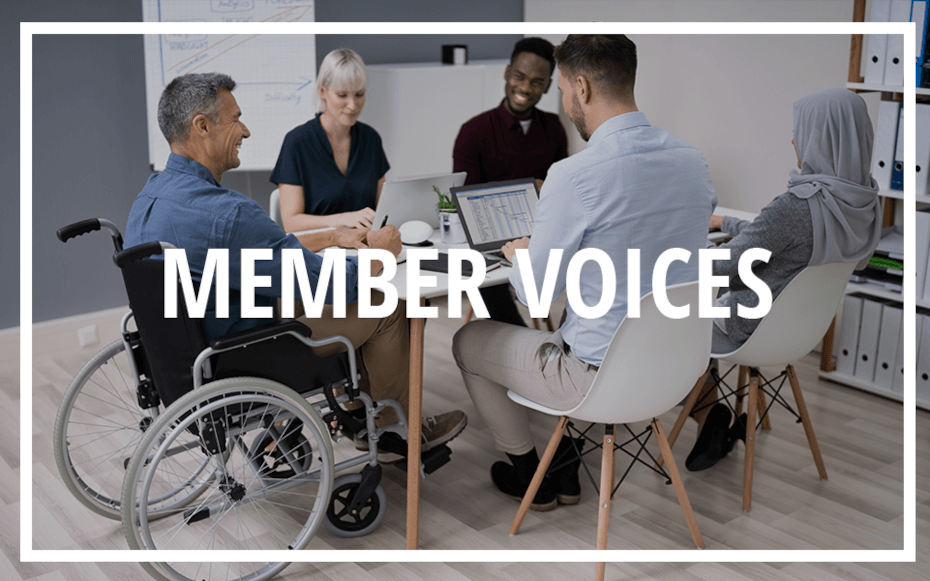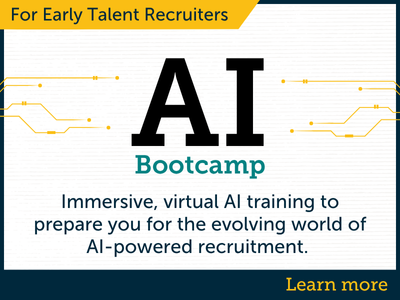Recently, a student came to our office for some feedback on his application for a highly coveted student leadership program at a prestigious firm. These leadership conferences and institutes have been used for at least a decade to attract diverse talent from the college student pool to cultivate for employment at their companies.
As we reviewed our student’s application, a few questions raised red flags for the career center staff, myself included. Most concerning was a required question that asked students to record a video essay in which they “describe their dimensions of diversity.” As described elsewhere in the application, “dimensions of diversity” include:
- Person of color;
- LGBTQ;
- Veteran;
- Person with disability;
- First generation American; or
- First generation college student.
The existence, wording, and required nature of this question sparked some questions about the changing landscape of diversity recruiting in 2021, the implications and impact to our students, and our role and responsibility as career educators and counselors in supporting both students and employers.
Authenticity at Work
One trend we’re seeing in the workplace is the push for authenticity. Employers are encouraging candidates and employees to bring their authentic selves to work and to the hiring process. There is a huge push to advertise workplace cultures that are conducive to bringing this authenticity. This is certainly part of our current wave of diversity, equity, and inclusion efforts. It is also largely due to Generation Z’s deeper acceptance of a wider range of identities, comfort with rejecting status quo in order to support and protect each other, and demands that their environments follow suit.
I really want to be excited about this ...
Gen Z already has such a huge impact on how we shape our societal structures and communities. This is not to discount the work that has been done, and is being done, throughout previous generations (Elder Millennial here!) but Gen Z is highly sought after by employers right now and holds a specific power to influence hiring and employment practices. Webinars, articles, and data I’ve seen over the last year from NACE, SHRM, and LinkedIn are strong indicators that employers are emphasizing the needs and preferences of Gen Z as they assess and revamp their recruitment strategies. I found it particularly telling that LinkedIn’s 2020 Global Talent Trends Report is focused almost entirely on the employee experience, and that 40% of the talent professionals surveyed said that they are investing in the employee experience to meet the expectations of Millennials and Gen Z. There is real, meaningful work being done throughout industries to shift the culture, and I have actual hope that we can move the needle.
… But I have some serious concerns.
As diversity recruiting efforts are not new, neither are the failures of the workplace to truly support and uplift diverse employees. We’ve made some concerted, if not yet adequate, efforts as a country to offer people with many different identities a seat at the table, but too often we just let them sit there. Salary disparities still disproportionately impact women, specifically women of color, and more specifically Black, Latinx, and Indigenous women. Too many workplaces still exhibit ableism. In the vast majority of companies the leadership is still far too homogenous. Marginalized employees often lack access to mentorship, professional development, promotions, and the realization of their ideas. Too few organizations are having open conversations about the ways in which white supremacy is built into the workplace, and how they can decolonize it. Crucially, too much of this manifests as microaggressions, dog whistles, and secret practices, so even when a company has written policies and established supports, it is difficult for employees to prove where the issues still lie. That feedback may never reach the leadership, and when it does, it may not go anywhere.
One of my favorite speakers, Jodi-Ann Burey, has a couple of great talks that offer some related insight and tools for organizations to move forward: Why you should not bring your authentic self to work and The Future of Work.
Our Responsibility in Career
So what happens to a student like ours, who sees questions on an application asking him to reveal some of his true, authentic self in the name of diversity recruiting? Interestingly enough, he did not come to us with concerns about any of these questions. He was excited to tell his story and to have it give him an edge in the recruiting process. As well he should be! But anti-discrimination laws still exist. Biases in hiring still exist. And the workplace may or may not be ready to honor and uplift this student in his full identity. What will happen to him if and when he gets there?
That first part is relatively straightforward for career counselors; we have been coaching students through answering illegal and inappropriate questions for a long time. We may want to refresh ourselves on the kinds of conversations to have with students to help them decide how they want to answer these questions, and how much of themselves they want to reveal. We certainly don’t want them to lose out on an opportunity that is designed to give them access they may not have previously had. And we don’t want to dim their shine! But we do have a responsibility to help them make informed decisions about sharing their identities and lived experiences in this context.
That second part might be more controversial. I’ve heard varying opinions about our role in helping students anticipate and navigate these difficulties once they are hired. Can we possibly prepare students for every eventuality? Must we warn them about all the challenges they might face? Should we be making assumptions about each workplace before a student even raises a concern? My short answer is yes! We actually do this already. We counsel students in various ways they can and should establish themselves at work: learning the politics of their environment, establishing their networks, mastering their job, seeking mentorship and professional development opportunities, impressing their superiors. We already invest time offering what we see as blanket advice that translates to any employee’s situation at any organization. We already take that role with students. We absolutely have a responsibility to include honest, personalized, and intersectional conversations about the structural inequities they might face in that process.
Lyn Leis is associate director of Career & Faculty Partnerships at Mercy College. Opinions represented here are her own.






